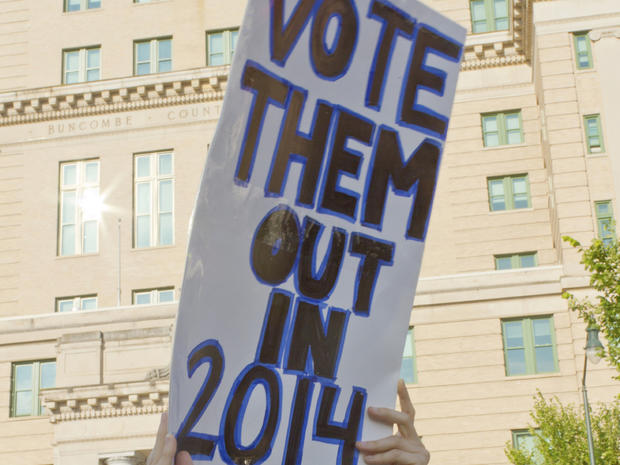Paychecks may finally be getting fatter
One of the biggest missing pieces of the U.S. economic recovery may be clicking into place.
Jobs have been coming back, and unemployment has ticked down, but workers haven't seen the kind of wage growth needed to kick the recovery into overdrive. That's one of the main reasons why Americans just don't feel like the economy is rebounding, even though experts say the good times are returning.
That may be starting to change. At least that's one takeaway from Friday's jobs report. Average hourly wages rose by 0.4 percent in November, the Labor Department said. And while that might not seem like much of a leap on its face, consider that it's the largest monthly spike in wages in more than a year.
Another encouraging sign: Employees are working more hours per week. The average workweek rose by 0.1 hour to 34.6 hours, which is the longest since May 2008.
But don't break out the party hats yet. That fact that economists are celebrating a measly 0.4 percent uptick shows how dismal wage growth has been in recent years. Wages this year are up only 2.1 percent -- far below the 3 percent to 4 percent increase that's one hallmark of a healthy economy.
The median annual household income in October was just $53,713, according to Sentier Research. That's just a 1 percent increase from a year earlier, and a 3.7 percent rise from August 2011.
Still, the growth is enough for economists to declare an overall upward trend in the making. And while that trend had been a slow burn, Friday's report of a massive 321,000 gain in jobs in November is leading some to think that wage growth will pick up, and fast.
"Overall, this is more evidence of how rapidly labor market conditions are improving," wrote Paul Ashworth, the chief U.S. economist at Capital Economics, in a research note.
Other economists note that pay still has a way to go. "Wage growth continues to be modest relative to productivity and profits, suggesting that labor markets are not tight enough to give workers much bargaining power," wrote Chad Stone, chief economist for the Center on Budget and Policy Priorities, in a note Friday.
Indeed, economists were looking at wage growth through several different lenses Friday. Analysts at Goldman Sachs (GS) focused on the broader impact on incomes from employment, the workweek and the staggering drop in oil and gasoline prices. In that scenario, real earnings are up 3.5 percent from a year ago, and stand to accelerate to nearly 4 percent over the next six months, the analysts said.
Finally, analysts at Bank of America Merrill Lynch (BAC) said it's still too early to see where the wage situation is heading. Give it a few months at least. "While the 0.4 percent gain is clearly encouraging, it is important to remember that this is not the first time during this recovery we have seen an increase of that magnitude," wrote Michelle Meyer, the bank's senior U.S. economist. "The key will be to have consistently stronger wage growth, and one month does not yet make a trend."
